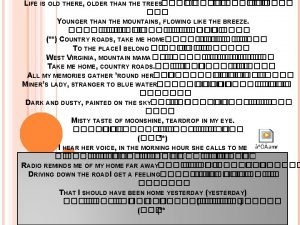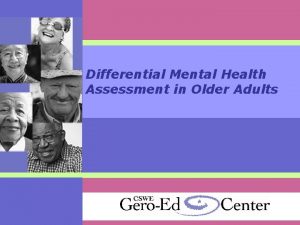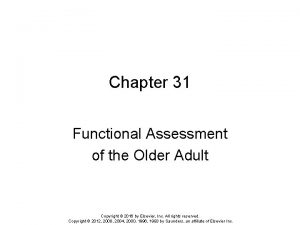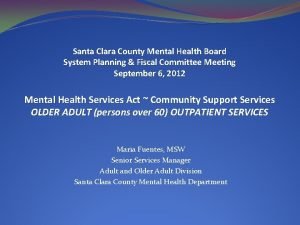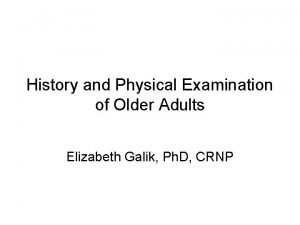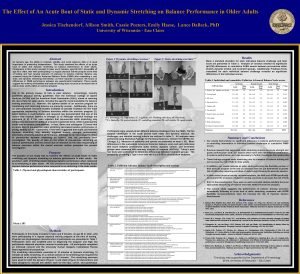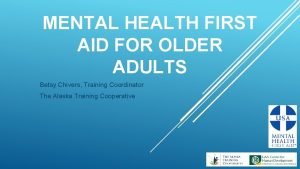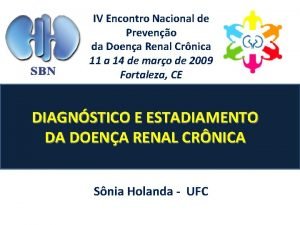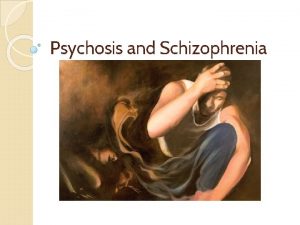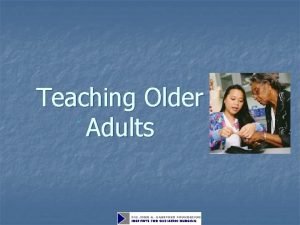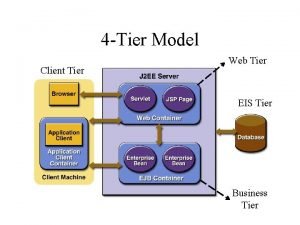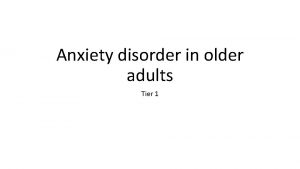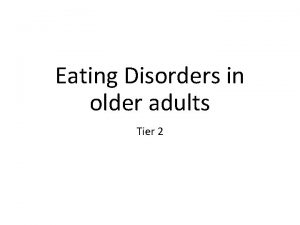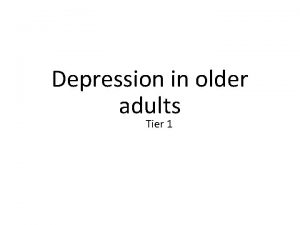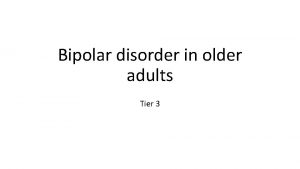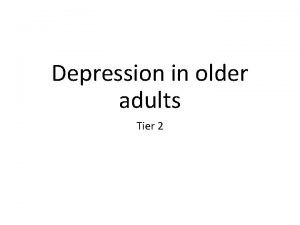Psychosis in older adults Tier 1 Psychosis What










- Slides: 10

Psychosis in older adults Tier 1

Psychosis What is psychosis? ‘Some loss of contact with reality’. This might involve hallucinations or delusions’ (NHS) Hallucinations – hearing voices/ seeing things/ sensation that someone is touching them/ experiencing smells that are not there Delusions- unshakeable belief in something untrue ‘When you perceive or interpret reality in a very different way from people around you. You might be said to 'lose touch' with reality. ’ (MIND)

Symptoms of Psychosis • Variable experiences depending upon the person and can include: • Hallucinations • Delusions • Disordered or confused thoughts • Disorganised behaviours • Negative symptoms (reduction in motivation , interest and or verbal expression) • The person is usually unaware that experiences are not real

Psychosis in older adults is important as it is • Common • Can have varied causes and presentations • Different prognosis • Associated morbidity and mortality is high • Higher rate of adverse effects from treatment

Causes of Psychosis in older adults • Delirium- Older adults with Delirium have high rates of psychosis (42%) • Mood disorder (either depression or mania) • Schizophrenia (either early onset or late onset) • Dementia - Older adults with dementia have high rate of psychosis • Alcohol and drug misuse/ withdrawals • Some prescription medications

Assessment • Is it new in onset or consistent with past mental health presentation? • Rule out delirium • Medical history including prescription medications • Investigations: FBC, U&E, CRP, LFT, VIT B 12 Urine dip, CXR, CT / MRI head • Assess for dementia or deterioration in already diagnosed dementia • Could this be a relapse of schizophrenia or depression with psychosis or a manic episode ?

Very late Onset Schizophrenia like Psychosis (VLOSP) Could present with : • Persecutory delusions • 3 rd person, running commentary and accusatory or abusive auditory hallucinations • Visual, tactile and olfactory hallucinations • This tends to occurs more in females than males • Hearing impairment is a risk factor

Treatment of Psychosis If you suspect psychosis and physical cause has been excluded: • Request assessment by Old Age Psychiatry services • Consider use of low dose of antipsychotic medication • Psychosocial interventions

Take home points • Psychosis can occur in older adults and is common • Take a detailed history • Make sure you exclude a physical health cause for the symptoms • Think about VLOSLP as a possible diagnosis • Antipsychotics can work very well in these patients • Low dose and slow titration is necessary, with early reviews • Use of antipsychotics can however increase physical health risks

Resources • MPC_04_04 Other People Tell Me I'm Seeing Things | Other People Tell Me I'm Seeing Things (mindedforfamilies. org. uk) • This is an easy to access website for older adults and their families which has good advice about symptoms and treatment of hallucinations in older adults
 Tier 1 words
Tier 1 words Tiered vocabulary pyramid
Tiered vocabulary pyramid Life is older than the trees
Life is older than the trees Mental health and older adults
Mental health and older adults Covids older adults
Covids older adults Altered cognition in older adults is commonly attributed to
Altered cognition in older adults is commonly attributed to Older adults mental health
Older adults mental health Physical examination conclusion
Physical examination conclusion Dynamic stretching for older adults
Dynamic stretching for older adults Mental health and older adults
Mental health and older adults Older adults
Older adults


